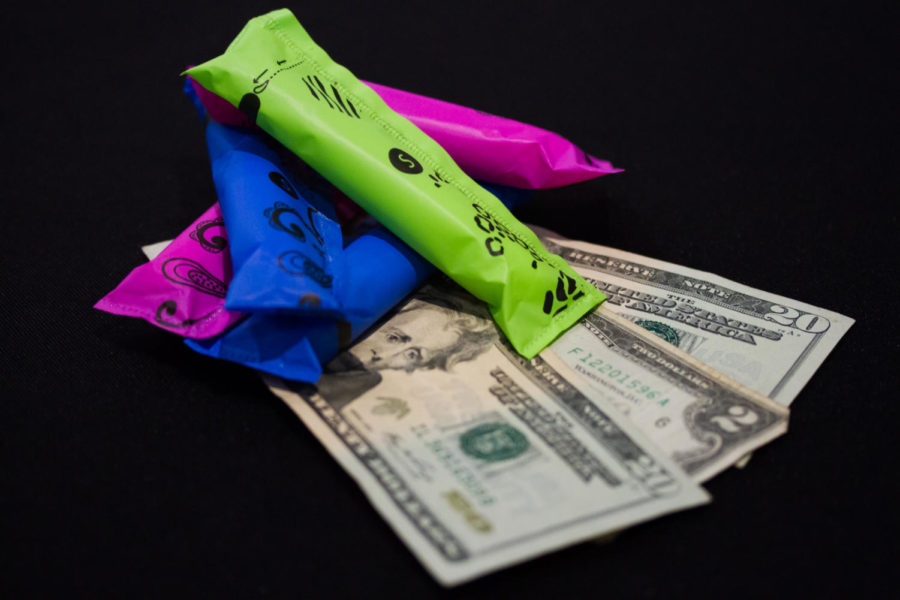Tax on feminine hygiene products raises concern
Tampon Tax
March 9, 2016
Taxes on feminine hygiene products have caused an uproar throughout the United States and across the world.
Most states exempt taxes on items that are considered a necessity, and many people are now asking if feminine products should be included in this category.
Tampons and other feminine products are currently viewed as a luxury item in most states.
Mary Raman, nurse practitioner at the Thielen Student Health Center, specializes in women’s health care.
“Clearly it’s not a lifestyle choice,” Raman said. “It’s a little bit of a difficulty as to where to draw the line, but if you ask me point blank is buying tampons a necessity for women, my answer is yes.”
Women make up 51 percent of the population in the United States, and the percentage of women in government is roughly 17 percent.
Raman said she believes a greater number of men in government could definitely play a part in why tampons are currently being taxed. Women are more likely than men to care about this issue, she said.
Megan Frisvold, sophomore in global resource systems, is co-president of the student organization Society for the Advancement of Gender Equity.
Frisvold brought up the idea that it is not simply because it is all men in Congress. It has to do with the fact that Congress is made up of older white heterosexual men, Frisvold said.
“The conversation isn’t really going to go anywhere with women’s issues,” Frisvold said. “There’s no diversity there.”
The tax on tampons is not the biggest issue women are facing, Raman said. She believes the tax does not seem as important when compared with the other injustices women are currently fighting.
“Women are frustrated,” Raman said. “They’re frustrated about the gender wage gap. They’re frustrated about access to reproductive freedom and contraception. This is just one of many burdens that some women feel.”
Canada recently became the first country to get rid of taxes on feminine hygiene products.
Maryland, Massachusetts, Pennsylvania, New Jersey and Minnesota are the only U.S. states that currently do not tax feminine products.
These states also do not tax items such as toilet paper, diapers and hearing aids, while most other states do. However, these issues are not a worldwide phenomenon.
There have been various incidents when other taxing issues have been brought up around the country.
A columnist in Florida started petitioning to abolish taxes on toilet paper; however, this issue received a limited amount of support.
Taxes on tampons are in the same category as taxes on all other toiletry items, but this particular issue is being discussed throughout the world.
“It’s seen as taboo, like we don’t ever talk about periods,” Frisvold said. “I think [this issue] is charged by the fact that it’s a gendered argument. The fire behind this tax issue is because of women’s issues”
Although there is much talk across the country, it is not yet clear whether a change will be seen in the future.
“Sometimes that momentum really does carry,” Raman said. “Sometimes those minor victories can lend momentum to helping the broader issues. If this is a way to gain a foothold, to bring more awareness to some of the issues that we face, that’s a great thing.”







